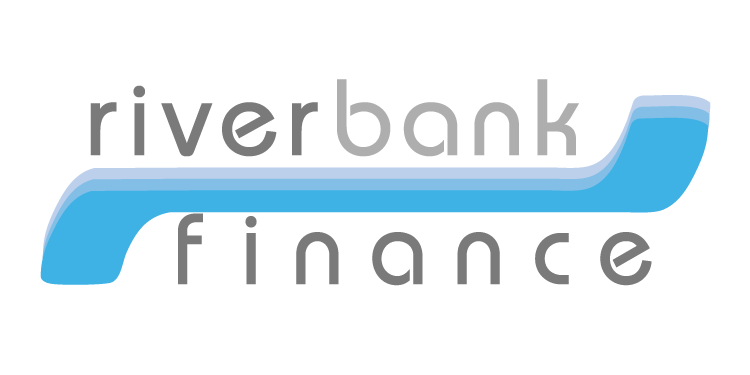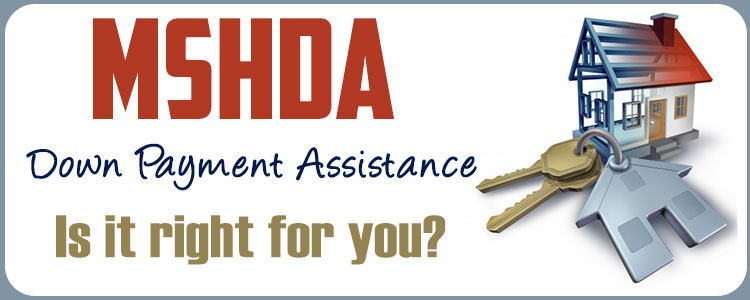What everyone is referring to as the new MSHDA grant is not free money. Actually, it is not even a grant. It is a second mortgage that may be used in place of a down payment when buying a new home in the form of down payment assistance. Contrary to what most people assume, it is not free money and must be repaid.
What is the MI Next Home Program?
The MSHDA MI Next Home Program is a program announced February 24th, 2014. It was highly publicized making its way onto local news channels and newspapers. Many potential home buyers will have heard of this program so it is crucial to know the details so time is not spent under the assumption that they can received the funds only to find out they do not qualify for the program and cannot complete the closing.
Michigan State Housing Development Authority’s new program is a down payment assistance loan that may be used to pay the down payment, prepaid items and closing costs when buying a new home. An eligible borrower may receive a second mortgage up to $7500 or 4% of the purchase price, whichever is less. This money will be funded to the escrow agent at close and a lien will be recorded against the property. When the property is sold or transferred, the homeowner must repay this money.
Who is Eligible for the MSHDA MI Next Home Program?
While there are some people that may be eligible for the $7500 down payment assistance from the MSHDA MI Next Home Program, many will not qualify due to income limits, too much in assets or even not enough in assets.
A home buyer that may be eligible for the new program must have owned a home in the past. They must be under the income maximum requirements and loan size limits. They also must be able to cover a minimum of 1% of the loan amount with their own assets but still not have assets available to cover the full down payment themselves.
Downsides to the Down Payment Assistance Program (DPA)
While many homeowners would like to keep extra money in their pockets when purchasing a home, the down payment assistance program may not be a wise choice for most home buyers even if they are eligible. The downsides to this DPA program include, potentially higher rates, potentially higher costs, less loan options, a lingering lien that never goes away and unexpected loan denials.
MSHDA Downsides to Consider
- Not Free Money – It is a Second Lien that MUST be repaid
- Property cannot be transferred without paying off the 2nd mortgage
- Property cannot be refinanced without paying off the 2nd mortgage
- Interest Rates may be Higher
- Borrower is Required to pay a minimum of 1% in closing costs out of pocket
- Borrower may not have funds available to cover the down payment on their own
- Borrower cannot receive down payment funds from the sale of their current home
- 2nd mortgage never goes away until it is repaid
- Conventional financing is not available
- May delay the Home Buying Process as it must be approved by MSHDA after full loan approval
- There are Income Limitations
- There are purchase price limitations
MSDHA sets the mortgage rates for the first mortgage that goes with the down payment assistance loan. There is no rate shopping or qualifying for a better rate if you have better credit – it is a take it or leave it rate option. Below is a comparison of a Rural Development loan with the DPA program and a standard Rural Development mortgage. On Rural Development loans, mortgage insurance, taxes and home owners insurance will be the same so let’s compare just the principal and interest of the loan itself.
Standard RD Loan | MSHDA DPA RD Loan | |
|---|---|---|
| Interest Rate | 3.75% / 4.138% APR** | 4.75% / 4.857% APR** |
| P&I Payment | $ 708.57 | $ 798.12 |
| Down Payment | Zero Down | Zero Down + 2nd Mortgage |
| Borrower Required to Pay | $0 (seller paid costs) | 1% = $1,500+ Minimum |
| Cost Over Life of Loan | $255,085.20 | $287,323.20 + $6000 DPA |
**Note: MSHDA rate quoted on 3/22/14 from Michigan.gov | Standard RD Loan quoted with similar costs of 1% origination, 740 credit score for a 100% financing USDA Rural Development loan in Michigan with a 30 day rate lock on 3/22/14. This example is for illustration purposes only. Exact rates, fees and costs may vary based on individual circumstances. Not all will qualify. For buyer to have $0 cost it may require a seller contribution at close. Contact your loan officer for a full mortgage quote based on your scenario.
As you can see from the above example, a home buyer that uses the MSHDA down payment assistance loan may end up paying an additional $32,238 in mortgage interest over the life of the loan. In additional to the extra interest paid, you still have to repay the $6,000 second mortgage. A better alternative may be to do a standard RD loan with seller paid closing costs built into the purchase agreement.
Flaws of the New MSHDA DPA Program
There are several flaws of the new MSHDA DPA program that could affect home buyers from qualifying for the program. Many times, real estate agents and home buyer will not realize that they do not qualify until they already have boxes packed and a purchase contract signed. This can be a very disappointing event in the home buying process.
Borrower Cannot Have Funds of Their Own Available for the Down Payment and Closing Costs
To qualify for the new MSHDA DPA program, a home buyer cannot have the funds available to cover the down payment themselves. This includes in any bank accounts, savings accounts, joint accounts, stocks, bonds, mutual funds, funds from gift letters, money borrowed from IRA/401k accounts, CDs, trust funds and the big kicker – not even equity in real estate. This is a major flaw considering the program is designed for home owners to upgrade or downgrade their homes and have the option to move into a house more suitable for their situation. What many people do not realize is that if you sell your current home and receive money from the sale, this automatically disqualifies you from the program. Even if you own some vacant land as real estate and it has no mortgage, the equity in this real estate may disqualify you from receiving the MSHDA loan.
The Property Cannot be Transferred or Refinanced Without Paying off the MSHDA mortgage
In today’s society it is a sad fact that 50% of all marriages end in divorce. With this statistic, the MSHDA grant could cause a large problem allowing one spouse to fully take over the house in the case of a divorce. The MSHDA 2nd mortgage that is placed on the home requires full repayment upon the transfer of a deed on the property. To record a standard quit claim deed and transfer ownership is not permitted.
This also is the same for those that wish to refinance their MSHDA mortgage. With a higher rate loan for the DPA program, a home buyer may want to refinance their mortgage to a lower rate or term if the opportunity presents itself. This is not allowed if a homebuyer uses the MSHDA funds. They will not make any exceptions in subordinating the 2nd mortgage lien that they place on the home which would be a requirement to refinancing. The home owner must repay the 2nd mortgage in full to qualify for a refinance.
Alternatives to the MSHDA DPA program
If a home buyer chooses not to apply for the MSHDA program or is disqualified for the program there are many great alternatives for home loans. One great mortgage option is the USDA Rural Development Loan which is a zero down mortgage program. A home buyer may be able to buy a home with zero down and nothing out of pocket. USDA mortgage rates are very low and the sellers may pay the closing costs.
If a home buyer is selling their current home and receiving a large chunk of money, they may want to consider a conventional mortgage. With 20% down there will be not mortgage insurance (PMI) which will help keep the payment low and avoid extra costs.
For more information on alternative mortgage options contact Riverbank at 1-800-555-2098 or apply for a mortgage online.
Summary: MSHDA Grant and Down Payment Assistance Flaws
The New MSHDA program is not free money that home buyers can receive when buying a home; it is a 2nd mortgage that must be repaid. There are limitations on income and assets to qualify for the program. If a homebuyer has money in the bank or even receives cash from the home they are selling, they may be denied financing. The rates may be higher for the DPA program than what a standard mortgage can offer and it may require the home buyer to pay more out of pocket than if they buy with a standard mortgage (See the MSHDA comparison chart above). If a home buyer does qualify for the program, it may cause unforeseen issues which may prevent the home buyer from transferring the property or even refinancing.
While there are some home buyers that will be able to utilize the new MSHDA DPA program, many will not qualify and will have great alternatives available. Before you apply for MSHDA it is important to know all the details and how it will affect you and your family now and in the future.
Where to Find more Information about MSHDA
Information about the new MSHDA program was communicated from Michigan.gov and a MSHDA employee, Sarah Nelson Bohné from the Homeownership Division. Information is reliable however not guaranteed and should be verified individually based on your circumstances.

 800-555-2098
800-555-2098


